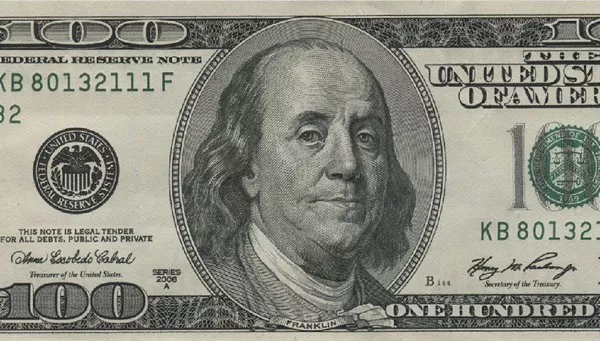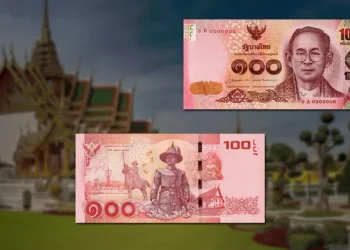When traveling or doing business internationally, understanding the current exchange rate between currencies is essential. Whether you’re planning a trip to Thailand or sending money abroad, knowing how much $500 is worth in Thai Baht (THB) helps you plan your finances better. This article explores the current exchange rate, factors affecting it, how to convert USD to THB, and how to get the best rates.
Currency exchange is the process of converting one country’s currency into another. The rates at which currencies are exchanged are not fixed and fluctuate based on a variety of economic, political, and market conditions. These rates are determined in the foreign exchange market (Forex), where banks, financial institutions, and traders participate in the buying and selling of currencies.
Understanding the Basics of Exchange Rates
An exchange rate tells you how much of one currency you can get with another. For example, if the USD/THB exchange rate is 35.00, it means 1 US dollar equals 35 Thai Baht. This is referred to as a floating exchange rate, which changes constantly depending on global demand and supply.
There are two main types of exchange rates:
- Floating Exchange Rate: Determined by market forces without direct government control.
- Fixed Exchange Rate: Pegged by a country’s central bank, usually to a major currency like the USD or Euro.
Thailand uses a floating exchange rate system, though the Bank of Thailand may intervene to stabilize extreme fluctuations.
How Much Is $500 in Thai Baht Today?
To calculate how much $500 is in Thai Baht, you need the current exchange rate. As of the latest data, the USD/THB rate ranges between 35.00 and 36.00, depending on market movements and service providers. Using an average rate of 35.50, the conversion would look like this:
$500 × 35.50 = ฿17,750
This means that $500 USD is approximately 17,750 Thai Baht at a rate of 35.50 THB per USD. Keep in mind this is an estimate; actual rates vary depending on where and how you exchange your money.
Factors That Affect Exchange Rates
Exchange rates fluctuate for a variety of reasons. Understanding these factors can help you time your conversions to get the most value.
1. Interest Rates
Countries with higher interest rates tend to attract more foreign capital, causing their currency value to increase. When the US Federal Reserve raises interest rates, the USD usually strengthens, potentially reducing the number of Thai Baht you get for your dollars.
2. Inflation Rates
Lower inflation rates in a country are associated with a rising currency value. Thailand’s inflation trends influence the strength of the Baht. A low inflation environment typically supports a stronger currency.
3. Political Stability
Investors prefer stable environments. Political unrest in either country can affect currency strength. Thailand’s internal politics and economic policies influence the THB, just as US fiscal policy impacts the USD.
4. Balance of Payments
A country with a surplus in its current account tends to see its currency appreciate. Thailand’s tourism and export industries play a significant role in its balance of payments and, therefore, the value of the Baht.
Where to Check the Current Exchange Rate
To get the most accurate and up-to-date information, you can check several sources:
- Commercial Banks: They offer live exchange rates, although their buy/sell prices often include margins.
- Currency Exchange Platforms: Websites like XE.com, OANDA, or X-Rates provide real-time data.
- Forex Brokers: They cater to both retail and institutional clients and reflect market-driven exchange rates.
- Mobile Apps: Many financial apps include real-time currency converters with charts and alerts.
Always confirm whether the rate shown is the mid-market rate or includes fees and margins.
How to Convert USD to Thai Baht
There are several ways to convert your US dollars to Thai Baht, each with its own costs, benefits, and limitations.
1. Currency Exchange at Airports
- Pros: Convenient and quick.
- Cons: Often offer less favorable rates due to high overhead costs.
2. Banks and ATMs in Thailand
- Pros: Safer and usually offer better rates than airports.
- Cons: May include foreign transaction fees or ATM withdrawal charges.
3. Online Money Transfer Services
- Examples: Wise (formerly TransferWise), Remitly, Revolut.
- Pros: Transparent fees, competitive exchange rates.
- Cons: May take 1–2 business days for the funds to arrive.
4. Currency Exchange Booths in Cities
- Pros: Competitive rates, especially in tourist-heavy areas like Bangkok.
- Cons: Always compare booths, and count your cash carefully.
5. Credit/Debit Cards
- Pros: Convenient for travel and emergencies.
- Cons: May incur foreign transaction fees and use less favorable exchange rates.
Tips for Getting the Best Exchange Rate
When converting $500 USD to Thai Baht, every fraction of a rate point matters. Here are some tips to help you get the best value for your money:
- Compare Rates: Don’t settle for the first rate you see. Check multiple sources.
- Avoid Airport Exchanges: Unless absolutely necessary, steer clear of airport kiosks.
- Use Cards with No Foreign Fees: Some credit cards waive foreign transaction fees and use near-market rates.
- Bring Crisp, Undamaged Bills: In Thailand, money changers may reject old or torn US bills.
- Exchange Larger Amounts: Some places offer better rates for higher denominations.
Historical Performance of USD to THB
Looking at the historical trends helps travelers and investors understand the volatility and timing of currency exchange. Over the past five years, the USD/THB exchange rate has ranged from 29.00 to 38.00.
- 2019–2020: The Baht was relatively strong, hovering around 30.00.
- 2021–2022: Due to the COVID-19 pandemic, the Baht weakened to above 33.00.
- 2023–2024: The USD peaked at over 37.00 THB due to rising US interest rates.
- 2025 Outlook: Mixed economic forecasts suggest the rate could stabilize between 34.00–36.00, depending on global factors.
Understanding these trends allows for better planning, especially if you’re transferring large sums or planning a trip.
Is It Better to Exchange Before You Travel?
This is a common question. Should you convert your $500 in the U.S. before you go, or wait until you arrive in Thailand?
Pros of Exchanging in the U.S.
- Security: You arrive with Thai Baht in hand.
- Predictable: You know exactly how much you’ll have.
Cons
- Worse Rates: U.S.-based exchanges typically offer lower rates for THB.
- Limited Amounts: Some services may not carry Thai Baht or offer poor service for less common currencies.
Pros of Exchanging in Thailand
- Better Rates: Especially in urban centers and tourist areas.
- More Options: ATMs, banks, and booths are widely available.
Safety and Security When Exchanging Money
Security is a major concern when carrying or converting currency in foreign countries. To stay safe:
- Avoid Street Changers: Only use licensed booths or banks.
- Use ATM Machines in Safe Areas: Prefer those attached to bank branches.
- Do Not Flash Large Sums of Money: Discretion helps avoid attracting attention.
- Check Money Carefully: Always count your money before leaving the counter.
It’s wise to split your money between cash and card, and keep a record of your transactions for tracking purposes.
Real-World Examples of Spending THB
To understand how much ฿17,750 (approximate value of $500) can buy in Thailand, here are a few real-world examples:
- Budget Hotel (per night): ฿800–฿1,500
- Street Food Meal: ฿50–฿100
- Taxi Ride Across Bangkok: ฿150–฿300
- Massage (1 hour): ฿250–฿500
- SIM Card with Data (7 days): ฿300–฿500
- Intercity Bus Ride: ฿400–฿600
You could comfortably spend 5–7 days in Thailand on a modest budget with $500, especially outside tourist-heavy regions.
Conclusion
Converting $500 to Thai Baht gives you roughly ฿17,750, depending on the exchange rate. To maximize your money, consider using reputable money exchange booths, avoid airport counters, and always monitor the mid-market rate before converting.
Understanding exchange rate dynamics, historical trends, and spending patterns in Thailand helps you use your money wisely. Whether you’re traveling, sending remittances, or investing, smart conversion strategies can save you time and money.
By keeping informed and being strategic, your $500 can go further than you expect in the Land of Smiles.
Related Topics:


























